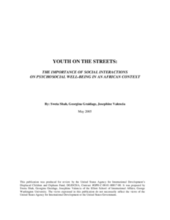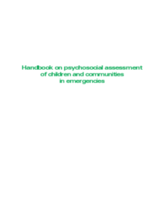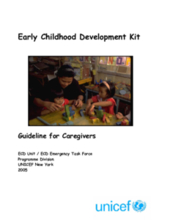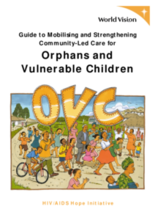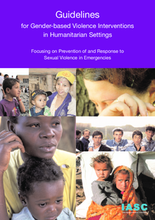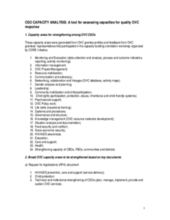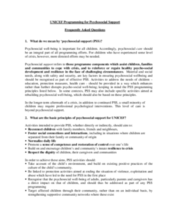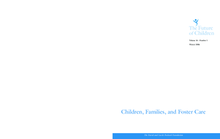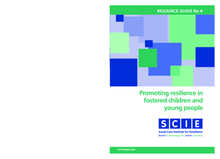Displaying 481 - 490 of 507
Research on the psychosocial factors contributing to distress of children living and working on the streets in Ethiopia. Highlights the importance of facilitating social relationships and connectedness. Suggests intervention constructs and measures based on the Psychosocial Child Well-being model.
A guidebook focusing on the assessment to be conducted when an emergency first hits or just after a major event in an armed conflict. Outlines the preparation needs of an assessment team and describes what an assessment should concentrate on.
Guidelines for caregivers of children in emergency situations, with a focus on the role of play in childhood learning and development. Includes a comprehensive list of suggested activities.
Comprehensive toolkit and resource pack for mobilising community-led OVC care. Includes detailed resources for training home visitors.
Comprehensive guidelines for dealing with the planning, establishment, and coordination of multisectoral interventions to prevent and respond to sexual and gender-based violence.
This document provides a tool that was used to assess broad capacity areas for quality OVC response in Uganda.
A self-study manual on the care, protection and psychosocial rehabilitation of commercially sexually exploited children.
Helpful resource for defining key terms, issues, and practices in psychosocial support. Contains a short list of recommended tools for support and monitoring of psychosocial support interventions.
In assessing the practice of foster care in the US and its current limitations, this series of articles advocates for the implementation of health assessments for all children in care, support to preserve permanency and assist birth families, comprehensive supports for foster families, specialized services for children in need, increased cultural competency in social work practice, coordinated services across sectors for families in need and comprehensive well being assessments for children in care.
A guide to building a child-focused foster system that works with the strengths of children and young people to enhance their resilience and ability to cope with adversity. It outlines practical ways to support caring relationships and create positive educational experiences that bolster self-esteem and self-efficacy.

